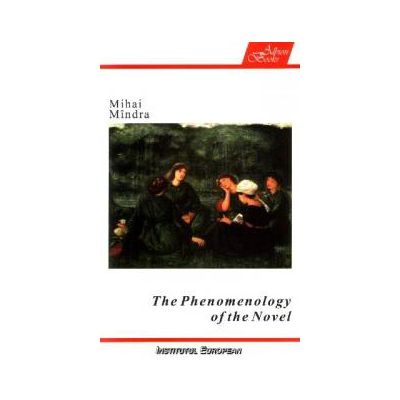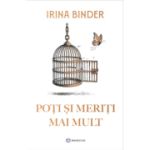THE PHENOMENOLOGY OF THE NOVEL

Preț: 22,90 lei
Disponibilitate: stoc indisponibil
Autor: Mihai MINDRA
ISBN: 973-611-228-4
Editura: Institutul European
Anul publicării: 2002
Pagini: 260
Format: 54x84
DESCRIERE
THE PHENOMENOLOGY OF THE NOVEL
The novel is perceived here as the only literary genre able to render that human reality which defines Dasein, i. e., the Being1 that is specifically human because it is aware of Time and the World as its main defining existentialia (Existenzialien). Previous attempts at defining the novel have hardly offered a distinctly clear referential framework. Lengthy discourse, plot complexity and realistic bias have often been mentioned as specific novelistic features. However, they suit other literary genres as well. On the other hand there is democratic tolerant acceptance of the imperfectness of the definition. It may even seem bad taste to try an accurate classification. Literary taxonomy is out of fashion nowadays. The practically bottomless pit called novel accommodates the Joycean stream-of-consciousness, the Tolstoian Bildungsroman and Dos Passos collage. Critics offer self-conscious elegant approximations of the genre acknowledging, in this way, our humanity and natural imperfection. The discourse means emplotment and manipulation. Reality is undiscourseable, wild, alive and unmanageable. A perfect image of the victory of das Man, we would say. The center is destroyed. Humanity is swallowed up by the centrifugal force of nothingness. The novel is everything that looks even remotely similar to what Cervantes, Crusoe and Fielding wrote four, three centuries ago. In this study we are trying a new approach to the definition of the novel. Our demonstration, based on Heideggers existential phenomenology, starts from the assessment of pre-novelistic stages where we detect plot as triggered and sustained by Furcht, a debased version of Angst, fear of finitude, despair caused by the refusal of the gods to help (myth: e. g. Ghilgamesh) or by non-admittance to numinous revelation (Middle Ages: e. g. The Holy Grail). However, in these stages, Welt was only hinted at, codified, as not yet really present or perceived through the veils of those cultures (Sumerian or Christian medieval) at the ontic, empirical level of everyday existence in Umwelt. We believe that the novel was born at a time when the drama of the confrontation between Dasein and das Man took shape through historical and social representations, through the middle class. Middle class values incorporated and highlighted the das Manian mundane aspects of the world. Daseins specific condition, that of throwness (Geworfenheit), manifested itself, externally, at the social level as alienation and otherness in relationship to a solid human network denying or ignoring the existential-metaphysical side of man for the sake of obvious public everydayness. In the following pages we shall try to demonstrate that a genuine poetics of the novel is possible on condition one starts from its existential metaphysics. The outsider status of this genre is of the princely stock in a hierarchy built on the solid and truthful foundation of Daseins existentialia.
The novel is perceived here as the only literary genre able to render that human reality which defines Dasein, i. e., the Being1 that is specifically human because it is aware of Time and the World as its main defining existentialia (Existenzialien). Previous attempts at defining the novel have hardly offered a distinctly clear referential framework. Lengthy discourse, plot complexity and realistic bias have often been mentioned as specific novelistic features. However, they suit other literary genres as well. On the other hand there is democratic tolerant acceptance of the imperfectness of the definition. It may even seem bad taste to try an accurate classification. Literary taxonomy is out of fashion nowadays. The practically bottomless pit called novel accommodates the Joycean stream-of-consciousness, the Tolstoian Bildungsroman and Dos Passos collage. Critics offer self-conscious elegant approximations of the genre acknowledging, in this way, our humanity and natural imperfection. The discourse means emplotment and manipulation. Reality is undiscourseable, wild, alive and unmanageable. A perfect image of the victory of das Man, we would say. The center is destroyed. Humanity is swallowed up by the centrifugal force of nothingness. The novel is everything that looks even remotely similar to what Cervantes, Crusoe and Fielding wrote four, three centuries ago. In this study we are trying a new approach to the definition of the novel. Our demonstration, based on Heideggers existential phenomenology, starts from the assessment of pre-novelistic stages where we detect plot as triggered and sustained by Furcht, a debased version of Angst, fear of finitude, despair caused by the refusal of the gods to help (myth: e. g. Ghilgamesh) or by non-admittance to numinous revelation (Middle Ages: e. g. The Holy Grail). However, in these stages, Welt was only hinted at, codified, as not yet really present or perceived through the veils of those cultures (Sumerian or Christian medieval) at the ontic, empirical level of everyday existence in Umwelt. We believe that the novel was born at a time when the drama of the confrontation between Dasein and das Man took shape through historical and social representations, through the middle class. Middle class values incorporated and highlighted the das Manian mundane aspects of the world. Daseins specific condition, that of throwness (Geworfenheit), manifested itself, externally, at the social level as alienation and otherness in relationship to a solid human network denying or ignoring the existential-metaphysical side of man for the sake of obvious public everydayness. In the following pages we shall try to demonstrate that a genuine poetics of the novel is possible on condition one starts from its existential metaphysics. The outsider status of this genre is of the princely stock in a hierarchy built on the solid and truthful foundation of Daseins existentialia.
Accesul clienţilor
-Noutati
-- 74,10 leiPRP: 78,00 lei
- 44,65 leiPRP: 47,00 lei
Promoţii
-- 74,10 leiPRP: 78,00 lei
- 44,65 leiPRP: 47,00 lei
- 57,00 leiPRP: 60,00 lei





RECENZII